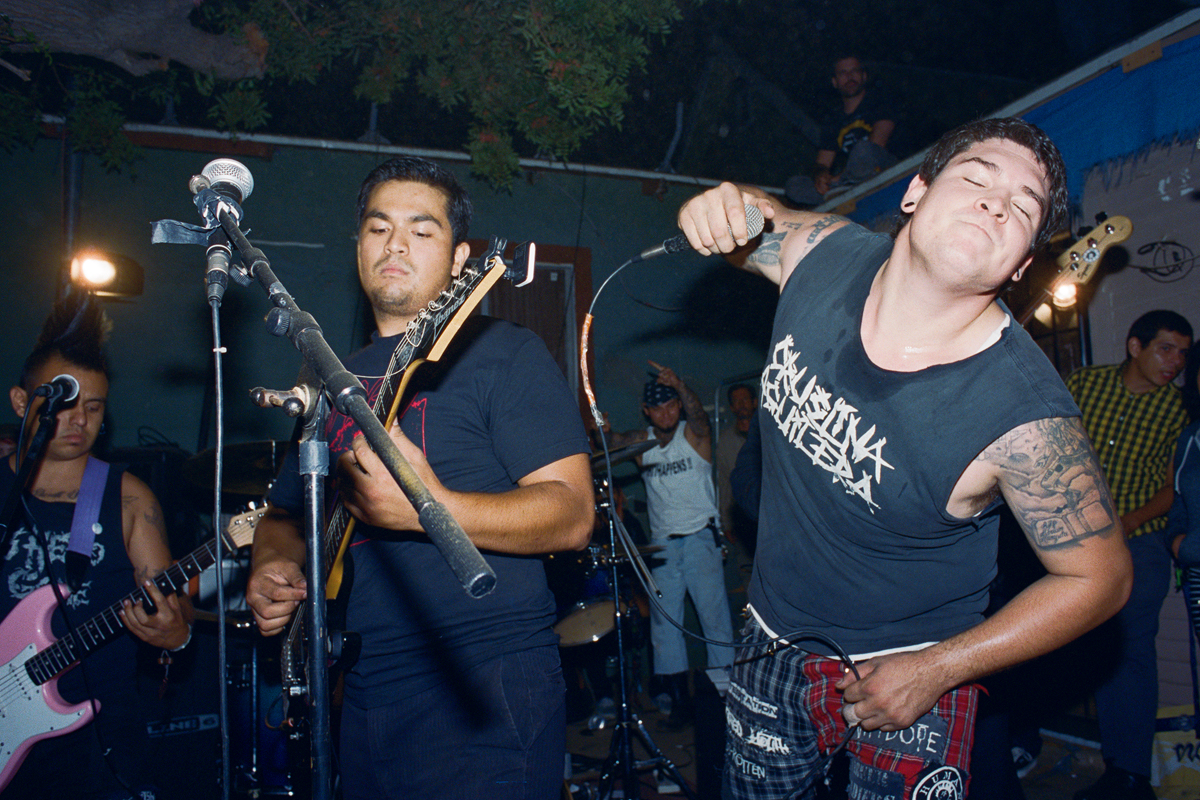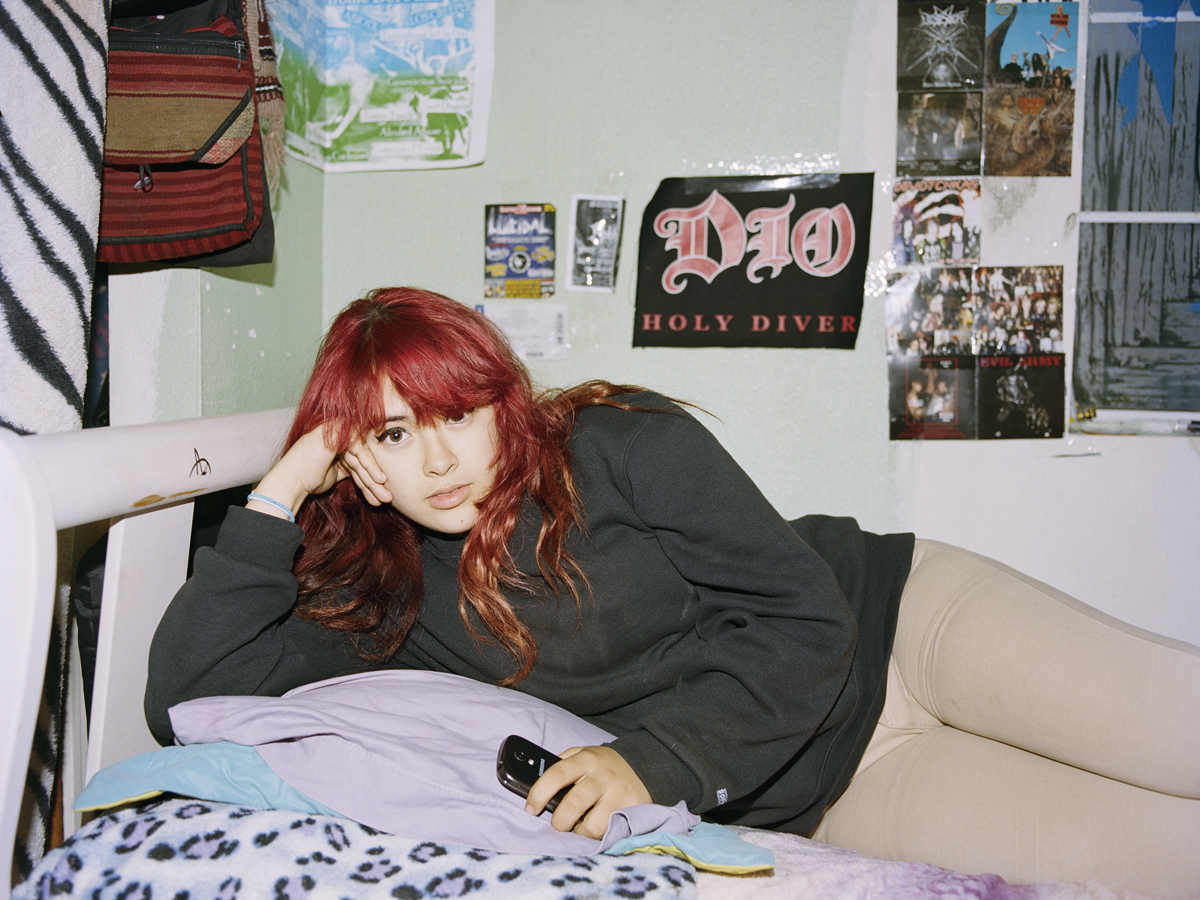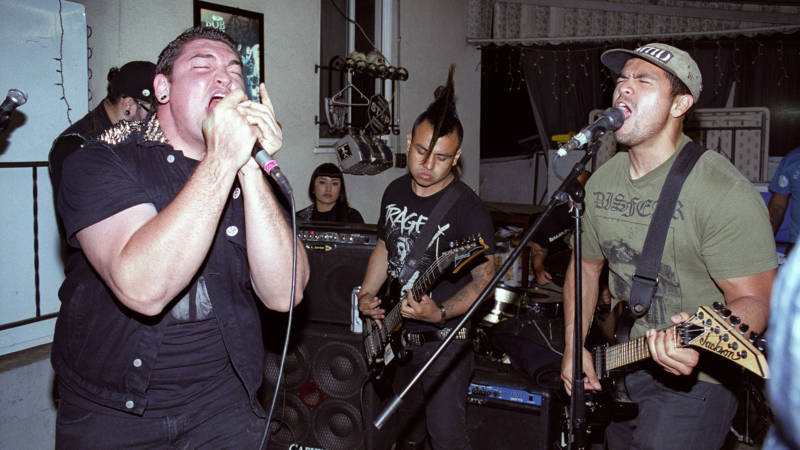“I love all these tiny details about people that make them distinct and special,” says lifelong documentary photographer and filmmaker Angela Boatwright. “I have this belief, ideally we all have this belief: we’re all human beings, regardless. If I was in your shoes, and I was given everything that you were given and not given everything that you weren’t given, then I’d probably make the same decisions you’re making.”
Angela Boatwright’s brand of radical empathy comes across in her latest piece, Los Punks: We Are All We Have, an intimate documentary chronicling five young punks growing up in the backyard scene of contemporary Los Angeles. We encounter each character in his or her element and get uniquely close to each of their struggles. Whether it’s coping with mental illness, absent parents or poverty, Los Punks shows us how the punk community has created a home for outsiders.

We meet Nacho Corrupted, the singer of Corrupted Youth, setting up a venue and working as a backyard show promoter, organizing concerts that attract thousands of fans from all over Los Angeles. Then we’re in the modest home of Gary Alvarez, the encyclopedically smart frontman of the punk band Rhythmic Asylum, who is celebrating a family member’s birthday while singing karaoke. Later, we’re introduced to April Desmadre, a 15-year-old girl who makes enough money working as a backyard show promoter to help pay her mother’s rent. There’s Alex Pedorro, the singer of Psyk Ward, who wrote song lyrics while institutionalized for his suicide attempts, and found solace in punk rock. Finally, there’s Jenny Oi, the scene’s sweetheart, who always has a hug and a kind word for everyone she encounters.
“The backyard punk scene is made up of people of all different walks of life and all different backgrounds,” says Pedorro. “Every single person is completely individual, but we’re all united through the same ideologies or love of music. It could be a very small thing in common, but you know in the scene that you’ve got people you can trust, you’ve got people you can count on.”

In Los Punks, people who feel disenfranchised from mainstream society come together, support each other, and create a safe place to express themselves. Boatwright humanizes the punks; while documenting the hardship the punk scene comes from and the social ills it protests against, she never loses sight of the rich, interior lives of each of her multi-dimensional subjects.


